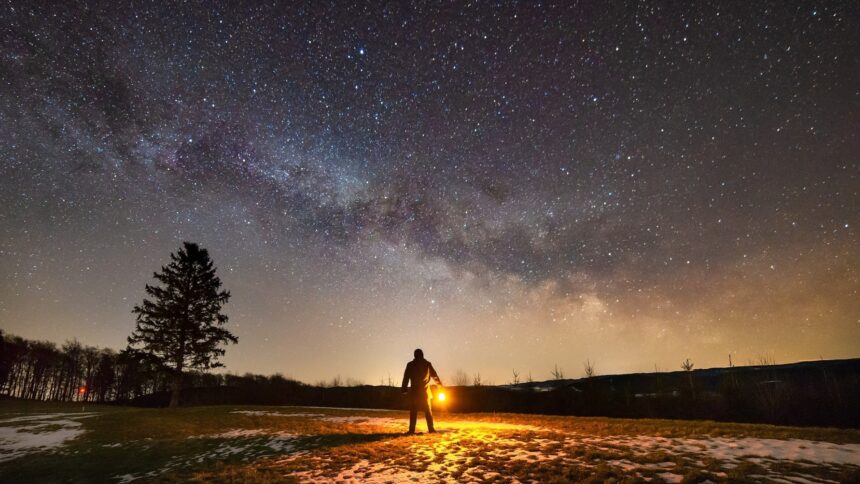When You Are Your Own Antagonist
By Lisa Janice Cohen | March 1, 2024 |
There is nothing trivial about writing a novel. Regardless of the surface appearance of the story, its genre, its apparent complexity or simplicity, its length, or its intended audience, to create a story is to create a universe. And an act of creation is at its core, terrifying.
Writers are masters of ‘what if’, but when that what if gets turned on the creator, it can completely derail the process. What if it’s terrible? What if no one reads it? What if it doesn’t sell? What if no one likes it? What if no one likes me?
All of those questions come from a place of fear. And fear is the natural antagonist of the creative process.
I’m not going to tell you how to eradicate the fear. Even if that were possible (and I don’t believe it is), it would lead to stories that fail to engage and fail to touch the reader.
A story needs an antagonist of some kind (be it a person, a group, or a force). And so does the creative process itself. Just as the antagonist in any given story must be balanced with a strong protagonist, the fear of writing needs a foil in hope and joy.
That tension within a story is what builds drama and stakes. That tension within the creator brings the necessary spark to ignite the process itself.
Remember, the role of the antagonist is to challenge the protagonist. The simple dichotomy of hero and villain leads to the cartoonish antics of Dudley Do-Right and the mustache twirling Snidely Whiplash. This kind of entertainment is often briefly amusing, but is rarely more than that. There’s a reason craft books advise writers to create antagonists who are the lead characters of their own stories. They need to have the same strength of motivation and rich backstory to mine as your protagonist. This makes for stronger narratives and a more satisfying reader experience.
When you are the author, you are both protagonist and antagonist. Of course you are because you have created everything and everyone in your story from the power of your imagination and passion. But more than that, we are all our own best advocates and our own worst enemies. At the same time.
I believe it is this dichotomy that fuels us as writers. The process of making sense of the fear – understanding the backstory and motivations of your personal antagonist – is essential. It drives us to dig deeper and find the core truth at the heart of our stories.
In order to create, we must balance those oppositional forces, harnessing the hope to navigate the fear.

photo by Lisa Janice Cohen
I recently watched a documentary about Molly Kawahata, a young climate activist who is also an ice climber. It’s called The Scale of Hope. As she talked about the challenge of climbing a steep ice wall in Alaska, it felt as if she were talking to me about writing a novel. One of the things she says in the documentary is this:
“You don’t try to climb something that’s literally impossible. You have to know that you could get to the top.”
That’s hope. And yet, her time on the ice is always tempered by fear, by the knowledge that failure is a possible outcome.
Those of us who write are scaling mountains of a different kind. Writing, like climbing, has its own technical skills and to persevere is to believe you can get to the top.
Kawahata brings that same sensibility to her work as a climate activist. And even more challenging is her personal history of living with a mental illness. She is very frank about her own mind being both her antagonist and her protagonist.
Regardless of our specific neurochemistry and limitations, we all bring our full selves to the table in the act of creation. The only way to get to the top of that particular mountain is to first know that it’s possible.
There is one additional aspect to Kawahata’s climbing experience: preparation. As writers, our preparation includes craft and community, research and practice. We would not even attempt to climb without having the right gear, the appropriate training, backup, and knowledge. Communities like Writer Unboxed, conferences, craft books, writing groups, and beta readers are some of our essential tools. However, all the preparation in the world can’t eliminate the fear; it only gives us the resources to draw upon when the work challenges us.
The mountain we set out to climb when we begin a novel isn’t a sheer cliff of ice, but it’s just as slippery and difficult to maintain traction and balance. At any given point, we are looking up to see how much of the face we have left to climb and looking down to see how far we’ve come. It’s all too easy to let fear leave us clinging to the ice, unable to move. But, if we rely on our preparation and equipment, understand that fear is necessary, we can set our toeholds and keep climbing one sentence, one word at a time.
Reach higher. I believe in myself and I believe in you.
What are you climbing? What fears do you face? How do you harness your joy to keep moving through the fear?










Well said, LJ. This is a great post to start a new month reading. It’s also a nice boost of encouragement just before the weekend, when I’ll have some time to dig back into the WIP.
Thanks, Ruth. I think I end up writing the encouragement I need. I’m glad it resonated with you.
L.
Your own antagonist… thank you. I’ve never heard it summed up quite so neatly, and it makes perfect sense. Of course part of writing is coping with our ability to get in our own way — and that can actually be a good thing.
When I read this, the first thing I thought of was how directly this could show up in a story. That is, are we plumbing enough of our own doubts and needs when the writing works through how *hard* a character’s journey could be? The difference between a by-the-numbers crime thriller and one with some depth might be leaning into our own fear of how rare it is to find a real breakthrough in any work and just how tireless that detective would have to be — or maybe how much we know about ordinary apathy and hoping for something extraordinary to make a witness speak up. We like to say writing’s about characters’ problems, but when part of that story makes *us* uncomfortable, do we give our characters an easy out or do we fight out all the layers and twists that it would take to well and truly make us believe too?
We write for the readers, and to do the characters justice, and for ourselves too. Maybe that’s how it all comes together.
“We like to say writing’s about characters’ problems, but when part of that story makes *us* uncomfortable, do we give our characters an easy out or do we fight out all the layers and twists that it would take to well and truly make us believe too?”
Yes! So much of this, too. I am often guilty of avoiding this kind of intensity and conflict in my work and have to really dig to get it on the page.
Thank you.
LJ
Hi Lisa, great post. Even if my dream of publishing my “forever” novel fades away, the work, the interest of creating this story will not. Neither will reading about other writers, their ideas and their struggles. Writing is that part of me that will never be denied. Thank you.
Thank you. Keep fighting the good fight. I know I will.
Best,
LJ
Hi, Lisa. Thanks for another thoughtful post. I never thought of myself as my own antagonist, but there’s a lot of truth to that. Writing requires an intentionality and perseverance, as you point out. Often, the only thing standing in the way of progress on a writing project is the writer. In addition to possessing writing skills, we must believe we can do it and follow through on that belief. Writing has been a struggle for me lately, due to external pressures and events. Writer Unboxed continues to be a tremendous resource and a source of support for me and other writers as we strive to pursue our latest writing projects. It was great to see you in Salem and I hope you are well.
Hey, Chris! Thank you. It was also great to hang out with you in Salem. Hoping we can each get out of our own way and get the words down.
Best,
LJ
Oh, no. An optimist. You do have it right, though. If I could just get my internal pessimist (who is also my internal editor and chief mocker) to shut up once in a while, I’d get some work done. This is a good one, LJ.
:) Mostly an optimist. Yup. Guilty as charged. Which doesn’t mean my inner pessimist doesn’t like to throw a spanner in the works. Getting it to shut up is definitely a challenge here, too.
Best,
LJ
Lisa, I needed to read this today…playing with a new book idea in my mind and on paper and not ready to commit yet. So no computer document yet…I don’t know why things on the computer feel like a major commitment. lol. I want to do everything so I have a lot of half-baked stuff. I worry that I’ll never get all the things I really want to write that are hard, finished. Thank you for your encouragement.
Thank you. So glad this one spoke to you. Keep the faith and write on!
L.
This is such a refreshing way to look at fear and be able to shift perspective to the antagonist as a useful tool. In the course of two days, I went from feeling that the new piece I’m writing was spot on to feeling that it was complete garbage! So I went back and edited the crap out of it, which at first I thought was my insecurity acting out, and then realized it was exactly what needed to be done. My writing had been way too cutsey and superficial as a means to avoid going deep and raw. It turned out my inner antagonist was completely spot on! As with many aspects of writing, it was a somewhat grueling process, but necessary and ultimately a worthwhile and positive experience. Excellent article, Lisa! Thank you.
Thanks, Joy! That’s one of my weaknesses too and something I am continually pushing myself to do better with.